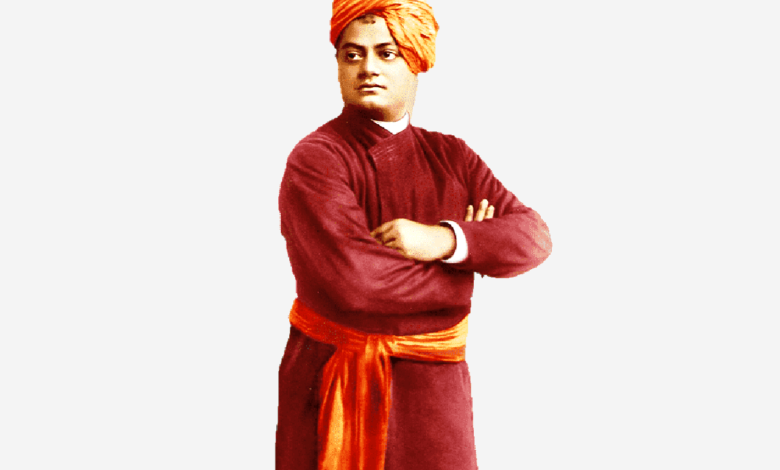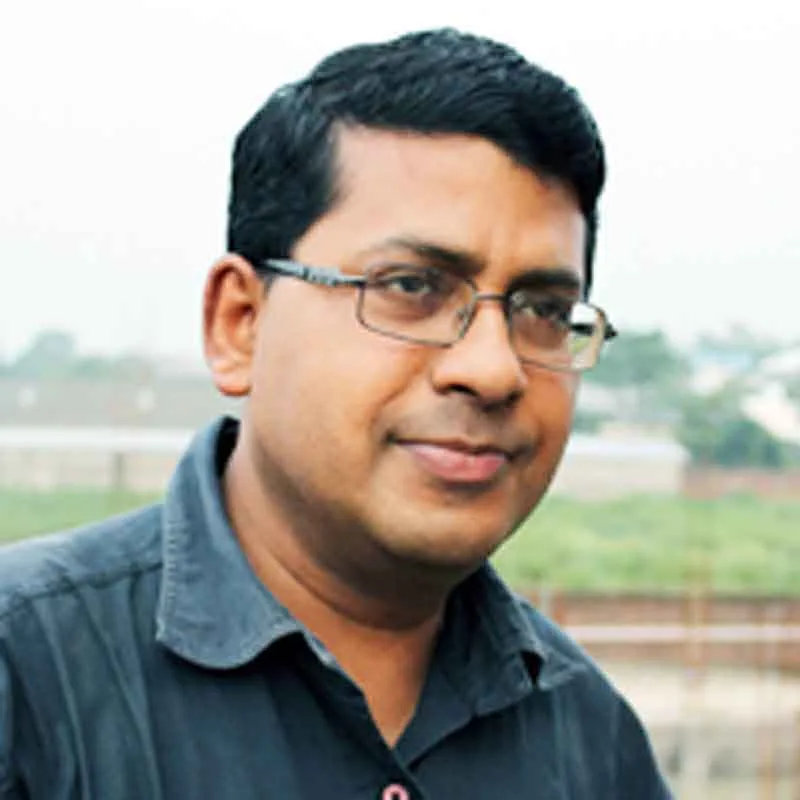VIEWPOINT : Ancient India, regenerated, stood up to the mighty West

VIEWPOINT
 Romit Bagchi
Romit Bagchi
“Everything happens according to the will of the Divine Mother. She is the Universal Will. She moves, but men imagine that it is they who move,” said an elderly disciple of Sri Ramakrishna Paramhansa. Young Narendranath Datta who was present retorted sharply: “I do not agree with you, with your He or She. I am the Soul; in me is the Universe. In me it is born, floats and disappears.” Unfazed by Narendranath’s imperious rebuttal, the disciple said to him calmly: ‘You do not have the power enough to change a single black hair into white one and yet you speak of the Universe. Without God’s will, not a blade of grass dies.” Without batting an eye, Narendranath, who was then a staunch follower of Brahmo Samaj, said, “Without my will the Sun and the Moon could not move. At my will, the Universe goes like a machine.”
Sri Ramakrishna listened to this spirited conversation intently with an ironic smile on his lips. Then he said to the disciple, “Truly, only Naren can say that, for he is like a drawn sword.” It was as though he knew that such stupendous strength was needed for the monumental work his dearest disciple was destined to do in his later life not just to wake up the somnolent India but also to hold a mirror up to the conceited West to show the bondage of its Soul.
The celebrated French writer Romain Rolland wrote in his book, ‘The Life of Vivekananda and the Universal Gospel’, “Such pride is only a hair’s breadth removed from the bragging of a matamore and yet there is a world of difference, for he who spoke these words was Vivekananda, an intellectual hero who weighed the exact meaning of his audacious statements. Here is no foolish self-glorification or utterance of a delirious Superman.”
Among the Swami’s biographers from the West, Rolland, who won the Nobel Prize in literature, is considered the best. A true Vedantist in his soul, he viewed Vivekananda’s journey to the West as an epoch-making event in the realm of spiritual and cultural exchange between the East and the West.
When I was rereading Rolland’s biography of the monk after many years, I felt thrilled not just by his profound knowledge of the unfathomable depth of the Hindu philosophy but also by his passionate advocacy to bridge the chasm between the East represented by the renascent India and the rationalistic West.
However, at the same time, as a representative of the inward-looking West, Rolland said that none of the ideas and aspirations Vivekananda embodied were alien to the real West. He urged the Asians, in general, and Indians, in particular, to rid themselves of the superficial and so fallacious judgment of the West on the basis of their understanding of the ‘Marketplace’ of Europe-their bankrupts, their politicians, their traders, their narrow-minded officials, their colonisers- their ravening wolves whose gospel was their maw. He affirmed that in spite of these people and their ideas, the real West was alive and awake to the light of the Soul. The oak of Europe would long ago have been hurled to the ground by the tempests that had raged around it if it had not been for the mighty spiritual sap rising ceaselessly from its silent reservoir.
And yet, Rolland warmly applauded the ‘new, greater India’ ushered in by the ‘Swan’ Guru and his ‘Eagle’ Disciple contrasted with the West-enamoured India represented by the followers of the Brahmo Samaj led by the liberal ideas of Raja Rammohun Roy. Despite his admiration for the Raja and his followers, he averred with a penetrating insight that the new, renascent India was uncompromising in the zealous avowal of her hoary civilisation, refusing allegiance to the imperious Western civilisation and choosing to rest solely on her own ideas bequeathed by the Rishis. In his view, India had stepped into her age-long heritage with the firm intention not to sacrifice any part of it but to allow the rest of the world to profit by it and to receive its return in the intellectual conquest of the West. Post-the Vivekananda phenomenon, Asia and Europe-the two giants-were standing face to face as equals for the first time and if they were wise they would work together and the fruit of their labour would be for all.
Urging the West to embrace the new knowledge disseminated by the Guru-Disciple duo, he said that it was high time for the rest of the world to profit from the marvellous movement led by the awakening India. It was not difficult for the West, he wrote, to accept and assimilate the ideas of the Indian Swami and his Master as these were in accord with many of their secret thoughts.
The West was amazed by Vivekananda’s invocation of the perennial Truth that India had been nurturing in her privileged bosom since the time of the Vedas: Involution and Evolution. He accepted Darwinian evolution which went against the concepts of the Western religion marked by its robust refusal to admit any evolution in the Creation. Darwin with his revolutionary theory had thus triggered an intense clash between the Western religion and the Western science. While accepting the truth behind the theory of evolution, the Swami asserted that it was incomplete without the comprehension and acceptance of ancient India’s idea of involution. “No rational man can quarrel with these evolutionists. But we have to learn one more thing. We have to go one step further and what is that? That every evolution is preceded by an involution.”
He brushed off the Western religion’s concept that God created the universe out of nothing and so God is separate from His creation. He, on the contrary, proclaimed with invincible conviction while harking back to the knowledge enshrined in the Hindu philosophy that the God is immanent in His creation. Why? Because the Eternal Being breathes out this universe and then breathes it in. Nothing in the universe exists outside the all-immanence of the Eternal Being. The Supreme Being gets involved in the universe and then evolves in multitudinous forms: a Self-Loss and then progressive Self-Finding, from lower to higher forms reaching the stage of the humans and now seeking to transcend the human to become the superhuman beings. This is the Eternal Being’s Lila or the Divine Play: playing hide and seek in His delight of Creation and Dissolution that have been going on ad infinitum.
Vivekananda invoked the Upanishads to aver that the universe has no beginning, dismissing the idea of the first cycle-the starting point. The universe has neither a beginning nor an end; it is being breathed out of Him and then dissolves into Him. It is not a creation but a projection of what already existed in the Creator.






